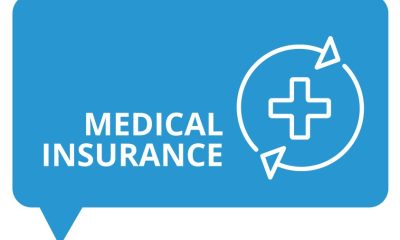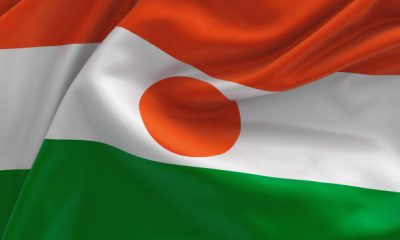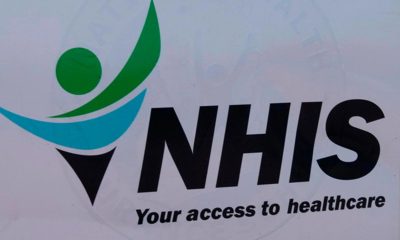Insurance
Health Insurance In Morocco For Expats & Foreigners

Foreigners visiting or moving to Morocco may likely have queries about health insurance. Even though Morocco is one of the safest nations to reside in North Africa, expats should still get good health insurance. Expats in Morocco are mostly concentrated in Casablanca, Rabat, and Tangier. It also has the top hospitals and medical centers and gives expats the best possibility of accessing English-language medical care in Morocco.
Health Insurance in Morocco – Your Options as a Non Resident
Moroccan healthcare has two tiers: public and private. In the required insurance plan, AMO (Assurance Maladie Obligatoire), state employers receive La CNOPS and private company employees receive CNSS. AMO is funded by company and employee donations. Moroccan workers are covered by La CNOPS or CNSS.
AMO members can receive public healthcare, but the national health insurance system isn’t Western. Healthcare quality relies on the hospital or clinic. Most expats in Morocco choose private expat medical insurance to receive private healthcare:
Morocco gained independence only in 1956. Morocco was separated into French and Spanish protectorates prior to its independence. Many beneficial adjustments have occurred in the Moroccan healthcare system since then. Although the Moroccan healthcare system is supposedly universal and comprehensive, access to high-quality care is not assured.
What Does the Compulsory Moroccan Health Insurance Cover?
Morocco’s mandatory medical insurance covers pregnancy, medical treatments for children under the age of 12, chronic conditions, diagnostic testing, x-rays, hospitalization, outpatient surgery, dental, optical, and paramedical therapy. The AMO pays between 70% and 90% of the costs (depending on the treatment); the patient pays the remainder. However, the Moroccan healthcare system solely covers costs incurred in the public sector.
Things You Need To Know When Considering Private Insurance in Morocco
If you just use public healthcare in Morocco, you may face language problems and significant wait times for GPs and specialists. The public healthcare industry in Morocco lacks doctors, nurses, and medical equipment. Outside of major cities, rural public healthcare is likely to be substandard.
Thus, non-residents should seek private medical care or even abroad for certain procedures. If your disease requires more advanced treatment in Morocco, see two specialists. Foreigners living in Morocco need get private insurance. As said, private health insurance in Morocco is pricey, so you may want to fly to Spain or France for more complicated treatments.
Doctors and nurses in public and private health insurance will likely speak Arabic and French. Private sector English is likely in larger cities. Keep in mind that your foreign health insurance company can help you find English-speaking providers.
Benefits of a Global Medical Insurance Plan
Expatriates working in Morocco should consider international health insurance. It provides superior healthcare and fits expat lifestyles better.
Since public healthcare can be inadequate and doesn’t always meet Western standards, expat health insurance covers the cost of private care with your doctor of choice, and more importantly in Morocco, specialist care abroad and even in your home country. International health plans also cover repatriation to your home country if you need long-term specialist care and medical evacuation to another city or country if you can’t get adequate care in Morocco.
Unlike the local insurance plan, a global medical insurance plan can follow you if you leave Morocco.
How Routine Doctor Visits Work in Morocco
You can visit any Moroccan GP without an appointment, however booking one is recommended. Morocco has few doctors, therefore wait times can be long. The country has 27,266 doctors, 7.1 per 10,000 inhabitants, well below the WHO norm of 15.3. Major towns like Casablanca, Marrakech, and Rabat have most of Morocco’s doctors.
Moroccan GPs are open Monday through Friday from 9:00 am to 1:00 pm and 4:00 pm to 7:00 pm, and Saturday from 9:00 am to 1:00 pm. A general practitioner must refer you to a specialist. Doctor and hospital costs are usually cash. Ambulances request cash payments in advance.
You need a recommendation letter for expert care or surgery to enter a Moroccan hospital, public or private. Please note that state hospitals in Morocco have poor equipment and treatment, so expats are strongly advised to seek secondary medical care in private clinics and hospitals.
Health Risks in Morocco
While Morocco is not a country facing any major health risks, everyone planning to move and work in the country should be up to date with the following vaccinations:
- Rabies is present in the country, especially in remote and rural areas. It is therefore advisable to get vaccinated against it.
- Measles is also present in Morocco, and expats should remember to get a booster shot.
- Typhoid vaccination is also recommended before moving to Morocco.
- Hepatitis A and Tetanus boosters vaccinations should also be considered.
Morocco is prone to water and food-related disorders like diarrhea, typhoid, and intestinal parasites, which expats should avoid. Daily precautions include drinking only bottled or boiling water, not having ice in drinks, and cooking meat properly. Buy meat and fish from clean supermarkets or butcheries and dine in hygienic restaurants.





















